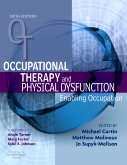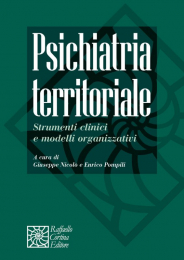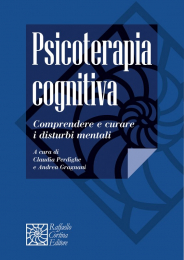Non ci sono recensioni
|
||||||||||
|
||||||||||
|
||||||||||
Table of Contents:
List of Contributors
Foreword (Annie Turner, Marg Foster, Sybil Johnson)
Preface
Section 1: Occupation and occupational therapy in context
Chapter 1 - Defining occupational therapy (Clare Wilding)
Chapter 2 - The nature of occupation (Matthew Molineux)
Chapter 3 - Occupational therapy: a disability persepective (John Swain and Sally French)
Chapter 4 - Contesting assumptions in occupational therapy practice (Karen Whalley Hammell)
Section 2: An overview of occupational therapy practice
Chapter 5 - Occupational reasoning (Joan Rogers)
Chapter 6 - Understanding models of practice (Jo Supyk and Jacqui McKenna)
Chapter 7 - Process of assessment and evaluation (Clare Hocking)
Chapter 8 - Writing occupation focussed goals (Julia Bowman and Lise Mogensen)
Chapter 9 - Enabling skills and strategies (Michael Curtin)
Section 3: Essential foundations for occupational therapy
Chapter 10 - Person-centred practice (Thelma Sumsion)
Chapter 11 - Occupation in context (Gail Whiteford)
Chapter 12 - Enabling communication in a person-centred, occupation-focussed context (Sue Baptiste)
Chapter 13 - Analysis of occupations (Gill Chard)
Chapter 14 - Psychosocial support (Jacqui McKenna)
Chapter 15 - Advocating and lobbying (Valmae Rose, Kevin Cocks and Lesley Chenowich)
Chapter 16 - Educational strategies (Tammy Hoffman)
Chapter 17 - Health promotion and occupational therapy (Rachael Dixey)
Chapter 18 - Working with groups (Claire Craig and Linda Finlay)
Section 4: Working with and within communities
Chapter 19 - Community development (Nick Pollard, Dikaios Sakellariou and Frank Kronenberg)
Chapter 20 - Developing partnerships to privilege participation (Roshan Galvann, Peliwe Mdlokolo and Robin Joubert)
Chapter 21 - Working towards inclusive communities (Hanneke van Bruggen)
Chapter 22 - Community based rehabilitation: opportunities for occupational therapists in an evolving strategy ((Kirsty Thompson, Christina Parasyn and Beth Fuller)
Chapter 23 - Entrepreneurial opportunities in the global community (Marilyn Pattison)
Section 5: Working with the individual
Chapter 24 - Enabling engagement in self care occupations (Helen van Huet, Tracey Parnell, Virginia Mitsch and Annette McLeod- Boyle)
Chapter 25 - Leisure (Ben Sellar and Mandy Stanley)
Chapter 26 - Play (Karen Stagnitti)
Chapter 27 - Work rehabilitation (Catherine Cook and Sue Lukersmith)
Chapter 28 - Home modification: occupation as the basis for an effective practice (Catherine Bridge)
Chapter 29 - Towards universal design (Leslie C. Young, Andrew P. Payne and Sharon Joines)
Chapter 30 - Assistive devices for enabling occupations (Helen Pain and Sue Pengelly)
Chapter 31 - Wheelchairs: posture and mobility (Rachael MacDonald)
Chapter 32 - Driver assessment and rehabilitation within the context of community mobility (Marilyn di Stefano and Wendy MacDonald)
Chapter 33 - Orthotics for occupational outcomes (Natasha Lannin and Iona Novak)
Chapter 34 - Biomechanical strategies (Janet Golledge)
Chapter 35 - Skills for addressing sensory impairments (Farieda Adams and Michelle Morcom)
Chapter 36 - Moving and handling strategies (April Brooks and Maggie Bracher)
Chapter 37 - Optimizing motor performance following brain impairment (Annie McClusky, Natasha Lannin and Karl Schurr)
Chapter 38 - Cognitive and perceptual strategies (Carolyn Unsworth)
Chapter 39 - Strategies for sensory processing disorders (Deborah Windley)
Index




